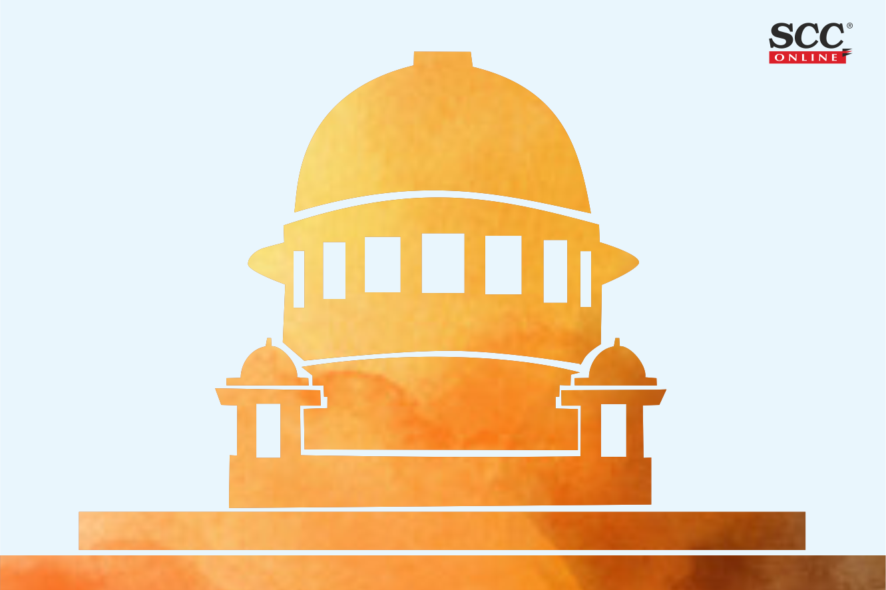Supreme Court: The Division Bench of L. Nageswara Rao and Aniruddha Bose, JJ., addressed the plight of children orphaned during Covid-19 pandemic. Lauding the steps taken by the Union and State governments to provide succour to the children in need, the Bench expressed,
“It is heart-wrenching to note that the survival of so many children is at stake. We are glad that the UOI and the State Governments / Union Territories have announced schemes to provide succour to the children in need. We have no doubt that the authorities concerned would leave no stone unturned to attend to the immediate basic needs of the crestfallen children.”
The catastrophe caused by the cataclysmic Covid- 19 had devastated many lives, especially children at a tender age who have lost their parents. Notably, more than lakh children have lost either or both parents during this pandemic. The Bench observed that satisfactory progress had been made by the executive in identification of the orphans and those children who had lost a parent during the pandemic. Preparation of Social Investigation Reports and Individual Care Plans was also on track. However, the Bench opined, the inquiries by CWCs need to be expedited to identify children in need of care and protection and immediate steps have to be taken to ensure that the benefits of schemes reach the needy children. The Bench emphasised that the welfare benefits should be provided not only to the children orphaned by Covid-19 but also to those children who had been orphaned during Covid-19.
Emphasising over Article 21A, the Bench stated that all children have a constitutional right to free and compulsory elementary education which is guaranteed by the Constitution. Therefore, the State is duty bound and is obligated to facilitate education for children.
To address the issue the Court had sought information from all the State Governments/Union Territories on following points:
- Identification of orphans and children who had lost either parent after March, 2020
- Stages of inquiries undertaken by the Child Welfare Committee (‘CWC’) in accordance with the provisions of the Juvenile Justice (Care and Protection of Children) Act, 2015 (‘the Act’)
- Schemes announced by the State Governments/Union Territories for the benefit of such children and the implementation of those schemes
- Information relating to the education of the distraught children and their continuation in the schools in which they are studying for the present academic year.
The ASG, Ms Aishwarya Bhati submitted that the education of eligible children up to 18 years was sought to be provided for under the PM CARES For Children – Empowerment of COVID Affected Children, launched for support and empowerment of Covid-19 affected children. According to the said scheme, beneficiaries would be given admission in the nearest Kendriya Vidyalaya or in a private school as a day scholar. On admission of the child in a private school, fees as per the RTE norms would be given from the PM CARES fund. Moreover, the scheme also provided for covering the expenditure on uniforms, text books and notebooks.
Considering the submission made by the ASG that 2600 children eligible for benefits under the scheme had been registered by the State Governments and out of which 418 applications had been approved by District Magistrates, the Bench took notice of the delay on the part of District Magistrates in providing the approval, accordingly, the Bench directed District Magistrates to complete the process of approval of the remaining children whose names had been registered for the benefit of the PM CARES Fund.
The Bench also directed State governments to confer with private schools to waive the fee of the distressed children, who have lost either parent or both parents after March 2020 for the current academic year. The Bench added, in case, the private institutions are unwilling to effectuate 8 such waiver, the State Governments shall shoulder the burden of the fee.
Sensing the inevitable complications, the Bench clarified that after completion of the inquiries, the CWCs may identify those children who do not need care and protection and financial assistance from the States and such children need not be given the benefits announced by the State Governments.
Lastly, the Bench directed the CWCs to complete all pending inquiries within three weeks and State governments were asked to file Status reports within four weeks.[Contagion of Covid 19 Virus in Children Protection Homes: In Re, SMW(C) No.4 of 2020, decided on 26-08-2021]
Kamini Sharma, Editorial Assistant has reported this brief.



